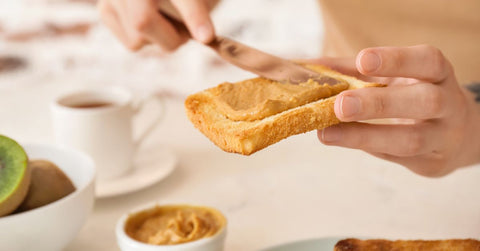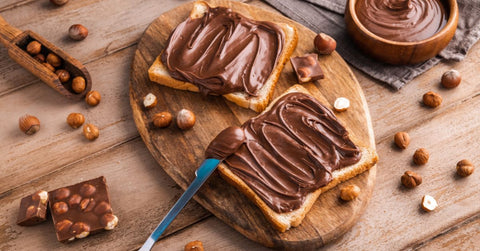Snacking can be a double-edged sword. While it can keep our energy up between meals, it can also derail our healthy eating goals if not done with intention. Understanding the do’s and don’ts of healthy snacking for better habits is crucial for maintaining a balanced and beneficial diet.
What is Healthy Snacking?
Healthy snacking involves choosing nutritious, satisfying foods that energize you over unhealthy options. It curbs hunger between meals, prevents overeating, and maintains steady energy levels, helping you avoid the mid-afternoon slump. Plus, it supports better concentration and mood and boosts your immune system.
Snack Choices
Choosing the right foods is crucial for healthy snacking because it directly impacts your overall nutrition and well-being.
Do: Choose Whole Foods
Whole foods are unprocessed, close to their natural state, and provide a wealth of health benefits. Think fruits, vegetables, nuts, and seeds, which are packed with essential nutrients. These foods are nutrient-dense, supplying your body with vital vitamins, minerals, and antioxidants.
Incorporating a variety of whole foods into your diet can support overall health, boost your immune system, and maintain energy levels throughout the day. By choosing whole foods, you opt for a more natural and wholesome approach to nutrition.
Don’t: Opt for Highly Processed Snacks
Choosing highly processed snacks can have several negative consequences on your health. These snacks often contain high levels of unhealthy fats, sugars, and sodium, which contribute to chronic health problems, such as obesity and heart disease. Snacks like overly processed potato chips, candy bars, and sugary cereals offer minimal nutritional value, making them less than ideal options for maintaining a balanced diet.
Processed snacks also frequently contain artificial additives and preservatives, which can adversely affect your body over time. These additives can lead to inflammation, digestive issues, and even allergic reactions in some individuals. Avoiding highly processed snacks can lead to substantial improvements in your overall health and well-being.

Nutritional Value
Nutritional value refers to the content of essential nutrients such as vitamins, minerals, proteins, fats, and carbohydrates in a particular food, which are vital for maintaining overall health and well-being. Understanding and prioritizing nutritional value in your diet ensures your body receives the necessary components to maximize functionality.
Do: Read Nutrition Labels
Reading nutrition labels helps you make informed choices about the foods you consume. Look for snacks that are low in sugar, sodium, and unhealthy fats, as these can contribute to various health issues such as obesity, hypertension, and heart disease. Snacks with higher amounts of dietary fiber, vitamins, and minerals provide your body with essential nutrients.
Along with the type of nutrients available, pay attention to the ingredient list and certifications. The ingredient list and certifications on a nutritional label matter because they provide transparency about what you’re consuming. They help you avoid harmful additives and choose snacks made from wholesome, natural ingredients.
Certifications such as organic, non-GMO, or fair trade can also guide you towards healthier and more ethically produced options, ensuring your snacking habits align with your health goals and values. By carefully reading and understanding nutrition labels, you can make healthier choices that support your overall well-being.
Don’t: Consume Empty Calories
Empty calories refer to foods and drinks that provide a high amount of energy but very little or no nutritional value. These items are usually high in added sugars, unhealthy fats, and refined carbohydrates, which can lead to weight gain and nutritional deficiencies if consumed frequently. Avoiding empty calories while snacking ensures that each bite contributes positively to your overall health.
Balancing Portions
Portion control and balance are crucial in healthy snacking because they help prevent overeating and ensure you’re getting a variety of nutrients. By keeping portions in check and incorporating diverse food groups, you can maintain a healthy weight and support your body’s nutritional needs effectively.
Do: Eat a Balance of Macronutrients
Balancing macronutrients—carbohydrates, proteins, and fats—assures your body receives a well-rounded nutrient supply for essential body functions. Carbohydrates provide the primary energy source for your body, proteins build and repair tissues, and fats are important for hormone production and nutrient absorption. A balanced intake of these macronutrients maintains steady energy levels, supports a healthy metabolism, and keeps you feeling full and satisfied, which can reduce the temptation to reach for unhealthy snacks.
To achieve a balance in your snacking habits, aim to include a variety of foods that cover all three macronutrient groups. Pair an apple (carbohydrate) with an Artisana raw almond butter (healthy fat and protein) or a Greek yogurt parfait with fresh berries and a sprinkle of organic granola. By thoughtfully combining different macronutrient sources in your snacks, you can provide your body with sustained energy and stave off hunger between meals.
Don’t: Ignore Portion Sizes
It’s easy to overeat when snacking, especially with tasty treats that are hard to resist. To maintain a healthy diet, always be mindful of portion sizes.
Pre-portion your snacks into smaller containers or bags to avoid eating too much at once. This way, you can enjoy your favorite treats without overindulging and keep your nutrition on track.

Conscious Snacking
Conscious snacking involves planning and selecting snacks by actively listening to your body’s hunger and fullness cues, promoting better overall health. Paying attention to what and when you eat allows you to choose nutrient-rich options that satisfy your hunger without overeating.
Do: Plan Your Snacks
Planning your snacks is a game-changer for maintaining healthy eating habits. Taking a little time to prepare and create convenient, healthy snacks ensures you avoid the pitfall of reaching for unhealthy snacks in moments of hunger.
Convenience is key to sticking with healthy habits. Keeping Artisana nut butter packets on hand guarantees easy access to a beneficial, protein-packed snack. You can even pack our nut butter sachets with pre-cut veggies or trail mixes. This way, you’re less likely to grab something unhealthy when you’re in a rush or craving a tasty pick-me-up.
Don’t: Snack Out of Boredom
Eating out of boredom occurs when you consume food not because you’re hungry, but because you’re looking for something to do. This habit can stem from a need for distraction, comfort, or simply passing the time. Eating without being physically hungry makes you more likely to consume excess calories, often from less nutritious foods.
You can counteract boredom eating by practicing intuitive eating, which focuses on listening to your body’s hunger and fullness cues rather than eating due to external triggers. Engaging in alternative activities like walking or reading a book can also distract you from the urge to eat out of boredom.
By understanding the do’s and don’ts of healthy snacking for better habits, you can make smarter choices that align with your health goals. With these tips and snacks from Artisana Market, you’ll be well on your way to maintaining a balanced diet and a healthier lifestyle.


